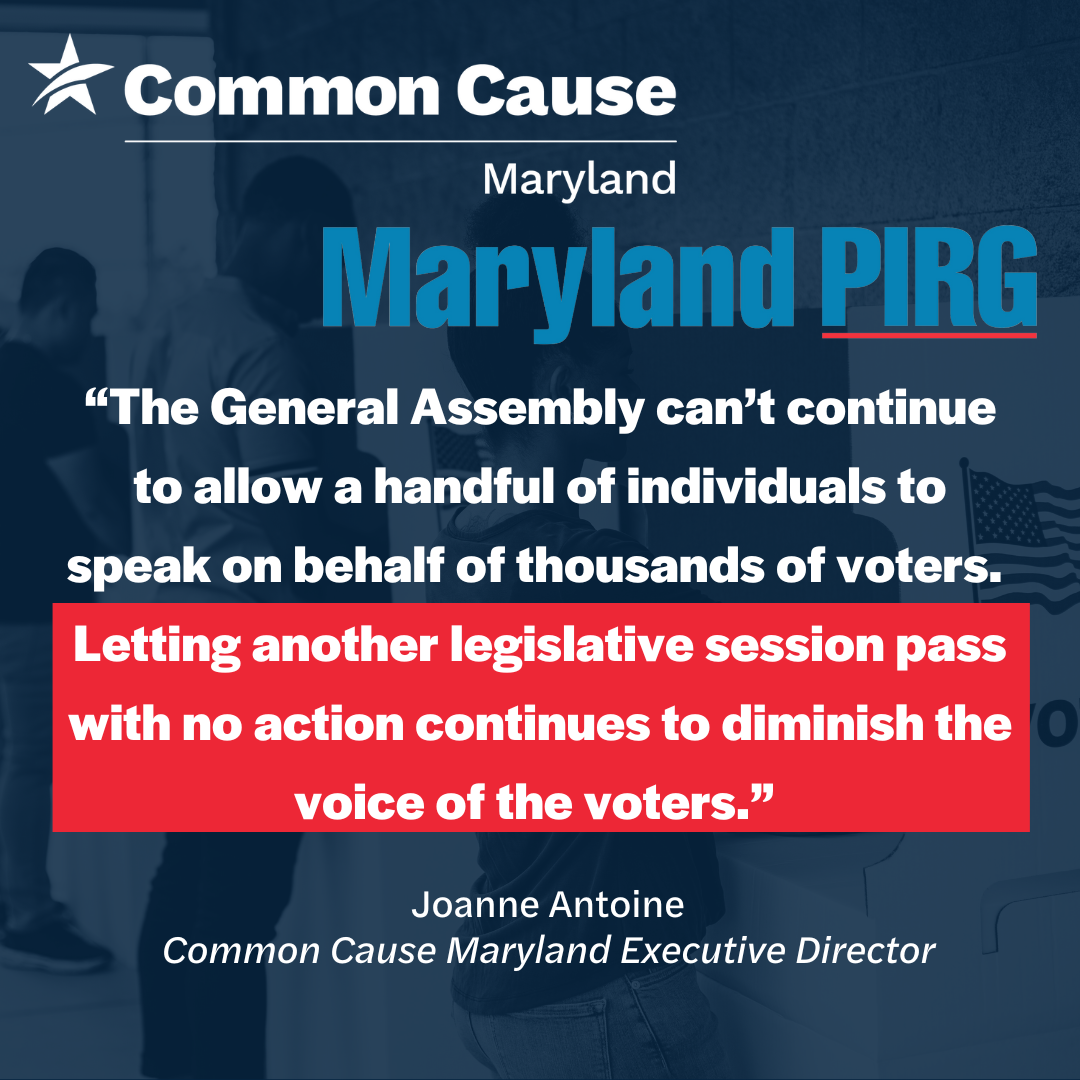Press Release
New Poll: 85% of Marylanders Favor Special Elections to Elect Representatives

With Sen. Melony Griffith’s announcement of her resignation last week, nearly one-third of the Maryland Senate will have been initially appointed, rather than elected, to their seats due to Maryland’s current system of filling vacant legislative seats. More than 20 percent of the House of Delegates have been similarly appointed. Overall, 23 percent of current legislators serving in the Maryland General Assembly were not originally elected to their seats.
In the most recent Gonzales poll, a full 85% of Marylanders favor having a special election to fill legislative vacancies; only 13 percent favor continuing the practice of having local political party leaders fill vacancies.
Under Maryland’s current system, vacancies in the General Assembly are filled by candidates forwarded by elected party central committees to the governor for approval. In recent history, most of these candidates were affirmed by the sitting governor. Many appointees are subsequently elected to full terms, benefiting from the increased name recognition and work of their incumbency. The person selected to fill Griffith’s seat, for example, will benefit from serving out the three years left in her four-year term – with voters having no say until the next statewide elections in 2026.
Pro-democracy organizations, led by Common Cause of Maryland and Maryland PIRG, are renewing their call for the General Assembly to act in the coming session to require special elections to fill legislative seats that become vacant.
“When vacancies occur for offices such as the Comptroller, the Attorney General, or the U.S. Senate, the voices of Maryland voters have the most weight in filling those seats. That should be the case for the state legislature as well,” said Common Cause Maryland executive director, Joanne Antoine. “The General Assembly can’t continue to allow a handful of individuals to speak on behalf of thousands of voters. Letting another legislative session pass with no action continues to diminish the voice of the voters.”
“It’s way past time for Maryland to establish a special elections process for legislative vacancies,” said Maryland PIRG Director Emily Scarr. “There is no doubt that appointed policymakers are committed to public service and their districts, but our democracy would be stronger and more resilient if we joined state legislatures across the country that hold special elections.”
Common Cause Maryland and Maryland PIRG have supported various proposals in recent years including full special elections and a compromise bill to require special elections for legislative vacancies that occur within the first two years of the four-year legislative term. The compromise version of the bill has passed the State Senate three times with unanimous support.
The proposal to give voters more of a say in who serves in the legislature is strongly supported by voters. “The current system is undemocratic; if anything, it is self-serving for political insiders,” says Liza Smith, who serves on the 14th District Democratic Central Committee in Montgomery County. “When 41 percent of the county legislative delegation has been appointed by a vote of 13 people on a party central committee, it is time to institute special elections to allow the people to vote to fill legislative vacancies. Democracy demands no less.”
The poll was conducted in September by Gonzales Media & Research Services and surveyed 818 registered voters; it has a margin of error of 3.5 percentage points.